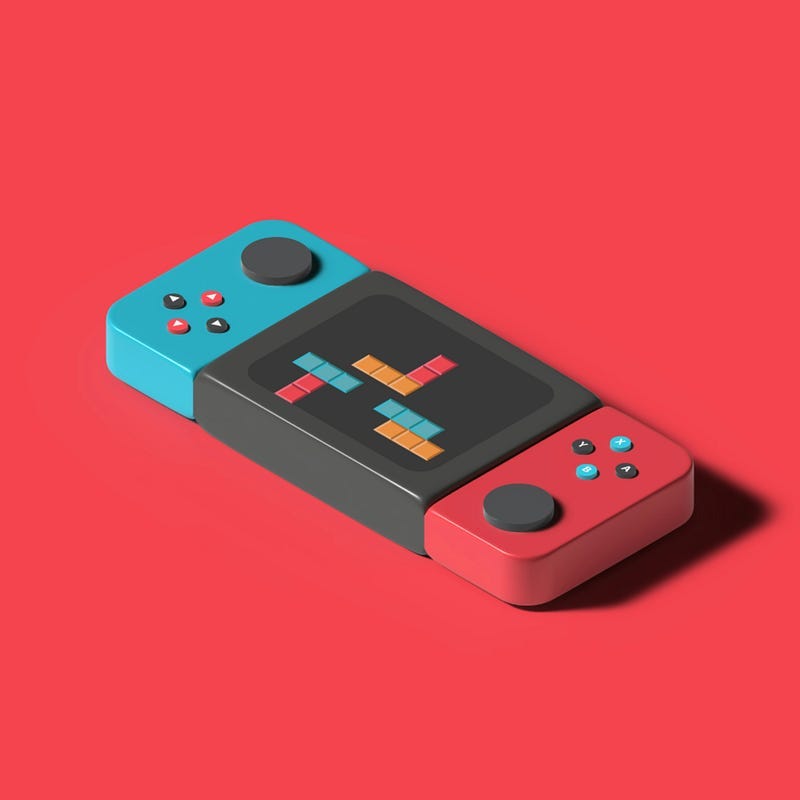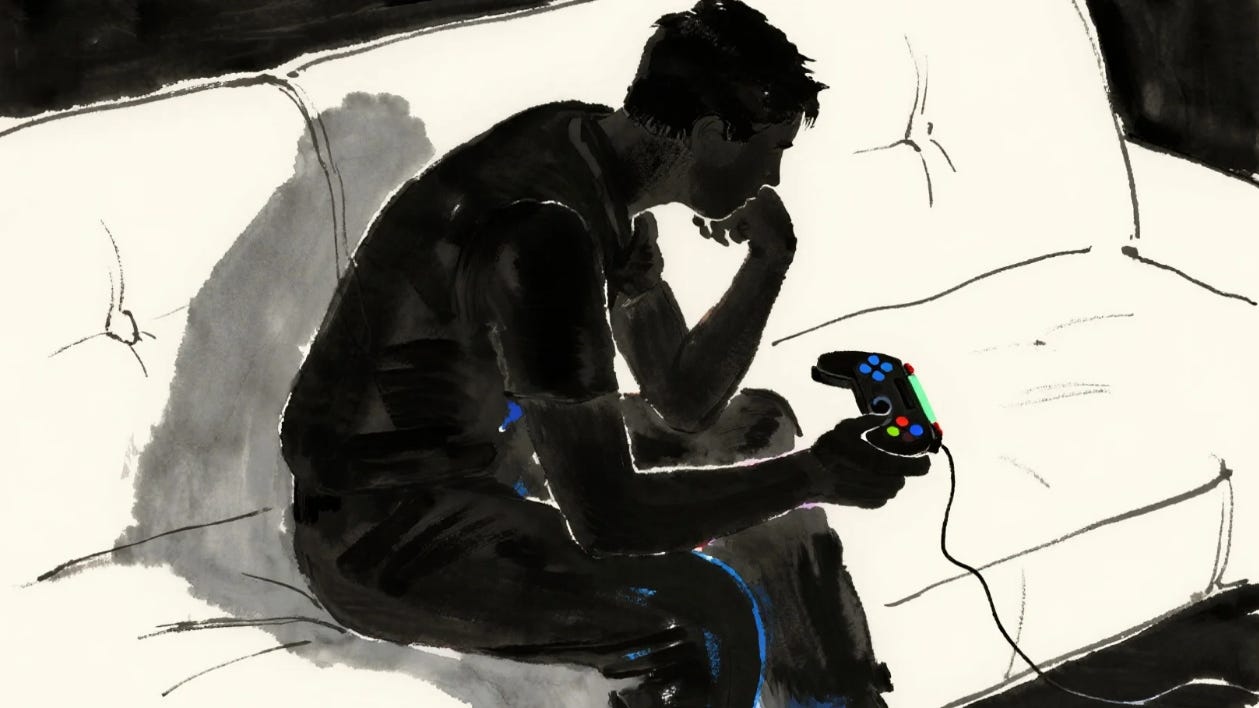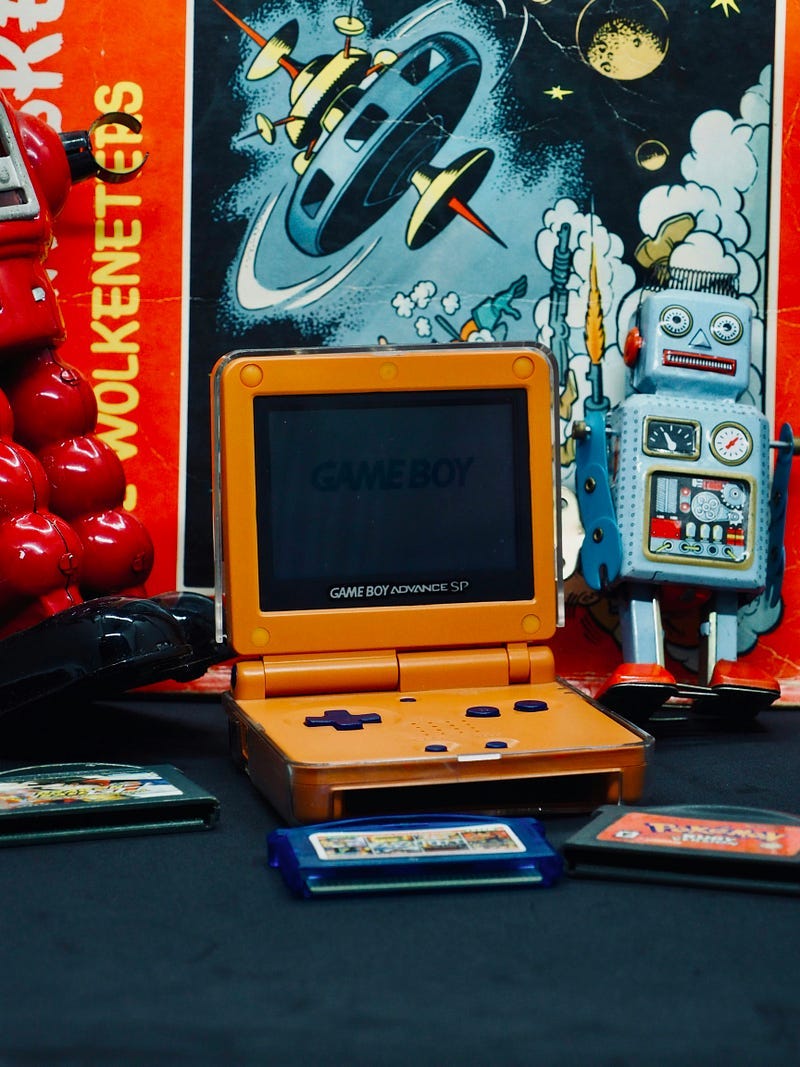How Games Make Us Better Humans
I still remember that summer, the cicadas buzzing, my sweaty palms clinging to a generic controller.
I still remember that summer, the cicadas buzzing, my sweaty palms clinging to a generic controller.
But when I pressed that red power button on the old TV and heard that deep, sacred startup sound, the whole world went silent. That was the first time I saw a universe I could control.
Back then, adults always thought we were wasting our lives, wasting our time. But they didn’t know that within that small screen was a universe vaster than the real world, and a better version of myself.
So many years have passed. The revenue of the gaming industry has long surpassed the global film and music markets combined. Billions of people worldwide are playing games. We should have stopped looking at it through outdated lenses long ago.
Gaming is not a cave for escaping reality; it’s a mirror, a gym, a social square. In its own unique way, it’s polishing us into better people, more complete “Better Humans.”
Why do we get so addicted to a game?
It’s not about the stunning graphics or flashy special effects. Psychologists figured this out long ago; it’s about what they call “Self-Determination Theory.” They say that for a person to feel good about life, they need three things deep down: a sense of Competence, Autonomy, and Relatedness.
Isn’t this the very essence of top-tier game design?
Competence: It’s that “I can do this” feeling. Think about your journey in Cyberpunk 2077, starting as a street kid and, step by step, through combat, negotiation, and missions, becoming a legend of Night City. Or in Dark Souls, after being brutalized by the same boss for an entire afternoon, your controller slick with sweat, every roll calculated to the millisecond. Finally, when you see its weakness and land the killing blow with your last sliver of health, you don’t jump up from the couch — you collapse back into it, letting out a long breath. That sense of control, extracted from extreme frustration and focus, is priceless in the real world.
Autonomy: This is the “my world, my rules” principle. In the Los Santos of GTA V or the world of Minecraft, no one tells you what you have to do. You can drive around, climb the highest mountain, or build your own city from scratch. This high degree of freedom allows you to explore and create entirely on your own terms. Games give us a sandbox where we are free to make mistakes and choices.
Relatedness: This is one of the most fundamental human needs; we need to connect with others. This is perfectly exemplified in online games.

Let’s break it down.
Single-player games are like an art-house film you get to star in. Through story and interaction, they let you step into someone else’s life, experience another existence, and thus gain deeper empathy.
I remember a player on Reddit sharing how a story in Ace Attorney completely changed him. In the story, a child is accused by his entire class, even the teacher, and everyone pressures him to confess to something he didn’t do. Only one classmate stands up for him, demanding evidence. This wronged child grows up to become a defense attorney, remembering that single pillar of support in his moment of loneliness. The player said this story made him realize that before joining an online mob, you should stop and think. Your single word of support might be all that keeps another person from breaking down.
You see? Isn’t that more profound than a hundred preachy articles? Games, in an immersive way, let you “walk a mile in someone else’s shoes.” Just like in Mass Effect, you’re not just watching a story; as Commander Shepard, you have to make the “painful” decisions. Do you sacrifice the future of one race to save your teammates? When you put the controller down and are still agonizing over your in-game choices, your sense of morality and empathy has already been quietly trained.
Online games, on the other hand, are a completely different scene. They are like a condensed version of real society, teaching us how to deal with all sorts of people.
Can World of Warcraft make us better people? Absolutely. I saw a player’s story on a forum that left a deep impression on me. He said he used to be introverted and even a bit ill-tempered. To join a guild, he had to “pretend” to be a helpful, good-natured person. He helped guildmates with quests, guided new players through dungeons, and slowly, he discovered that the joy of helping others was real. After a few years, his friends said he had changed, becoming cheerful and reliable. He said he was acting, and eventually, the “lie” became his truth.
“A Waste of Time”? On the Contrary, We’re Searching for Meaning
“Playing games is a waste of time.” Behind this statement lies an extremely narrow utilitarianism — as if every minute of life must be exchanged for productivity in the real world.
But we gamers should have been immune to this argument long ago. Because what we experience in games is far more profound than they can imagine. We are not escaping reality; on the contrary, we are exploring the meaning of being human in a purer, freer space.
Games bring us back to our essence as “Homo Ludens” — Man the Player. Johan Huizinga told us long ago that human civilization, from poetry to law, originated from the “spirit of play.” It’s an activity voluntarily undertaken within rules for the sake of pure enjoyment. When we drift around a corner in Mario Kart World Tour, we are experiencing this “non-utilitarian” pure joy.
This joy is the wellspring of creativity, a spiritual liberation that temporarily frees us from the shackles of reality. So, make no mistake, it’s not that games waste our time, but that this spirit of play creates what we call civilized time.
In this era, passively scrolling through short videos can bring fleeting pleasure, but it’s often followed by emptiness. In The Legend of Zelda, however, spending hours solving a complex shrine puzzle yields a deep sense of spiritual satisfaction from actively taking on a challenge and overcoming it. This joy truly nourishes our souls and helps us combat mental fatigue.
Most importantly, games give us the power to define ourselves. One acts and chooses to shape oneself. This is the very core of role-playing games. In the Night City of Cyberpunk 2077, you start as a blank slate. It’s your conversations and your choices, one after another, that ultimately determine who you are. In an age where big data and algorithms try to define us, games provide the freest soil for us to practice answering the ultimate question of “who am I?” and to contemplate justice, sacrifice, and belief.
So, let’s stop using the impoverished label of “wasting time” to describe gaming. We experience freedom within Huizinga’s “magic circle,” find high-quality joy in overcoming challenges, and define our own existence through countless choices. This is not a waste; this is infusing life with meaning.
Final thoughts
So, gaming, this once-misunderstood art form, is using its unique interactivity and immersion to let us rehearse real life in a virtual world: learning resilience, understanding empathy, and building trust.
So, the next time someone asks what you get out of gaming, you can look them straight in the eye and tell them:
“I get far more than you can possibly imagine.”
We’re not just playing games; we are, through every quest, every challenge, and every victory, shaping a better version of ourselves.
AI generated some images and helped write the article.




